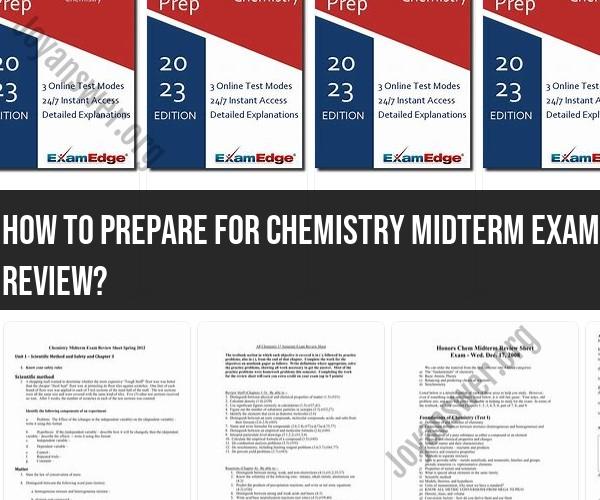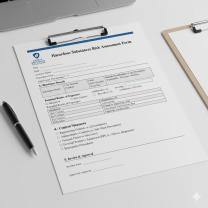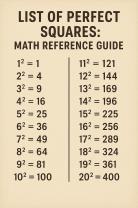How to prepare for chemistry Midterm Exam Review?
Preparing for a chemistry midterm exam requires a systematic and effective review strategy. Here are some steps and tips to help you ace your chemistry midterm:
Organize Your Notes and Materials:
- Gather all your class notes, textbooks, assignments, and any additional study resources you have.
- Ensure you have a clean and organized study space free from distractions.
Create a Study Schedule:
- Make a study schedule that covers all the topics you need to review before the exam.
- Allocate specific time slots for each topic or concept, and stick to your schedule.
Review Class Notes:
- Start by reviewing your class notes. Pay attention to any topics your teacher emphasized or mentioned as important.
- Summarize key concepts and equations in your own words as you review.
Textbook and Supplementary Materials:
- Read relevant chapters in your textbook. Focus on understanding the main concepts and examples.
- Use supplementary materials like online tutorials, videos, or study guides if available.
Practice Problems:
- Chemistry is a subject where practice is crucial. Work through as many practice problems as you can find.
- Start with basic problems and gradually move on to more complex ones.
- If your textbook has practice questions or problem sets, use them.
Flashcards:
- Create flashcards for important chemical formulas, equations, and concepts.
- Use flashcards for quick review and self-quizzing.
Online Resources:
- Utilize online resources such as educational websites, YouTube tutorials, and chemistry forums for additional explanations and practice questions.
Study Groups:
- Consider studying with classmates or joining a study group. Discussing and teaching concepts to others can help reinforce your understanding.
Practice Exams:
- If your teacher provides practice exams or past midterm papers, take advantage of them.
- Simulate exam conditions and time yourself while taking these practice tests.
Concept Maps and Diagrams:
- Create concept maps or diagrams to visualize complex chemical reactions and concepts.
- Visual aids can help you understand and remember information better.
Review Periodically:
- Don't cram all your studying into one or two days. Review material periodically over several weeks leading up to the exam.
- Spaced repetition is more effective for long-term retention.
Stay Healthy:
- Get enough sleep the night before the exam to ensure you're well-rested and alert.
- Eat balanced meals and stay hydrated during your study sessions.
Seek Help if Needed:
- If you're struggling with certain topics, don't hesitate to ask your teacher for clarification or seek help from a tutor or classmate.
Practice Time Management:
- During the actual exam, allocate your time wisely. Don't spend too much time on a single question; move on and come back if needed.
Stay Positive and Confident:
- Believe in yourself and your ability to succeed. A positive mindset can boost your performance.
Remember that effective studying is not just about how long you study but how efficiently you use your study time. Break down the material into manageable chunks, and use active learning techniques like summarizing, teaching, and problem-solving. Stay consistent with your study schedule, and you'll be well-prepared for your chemistry midterm exam.












